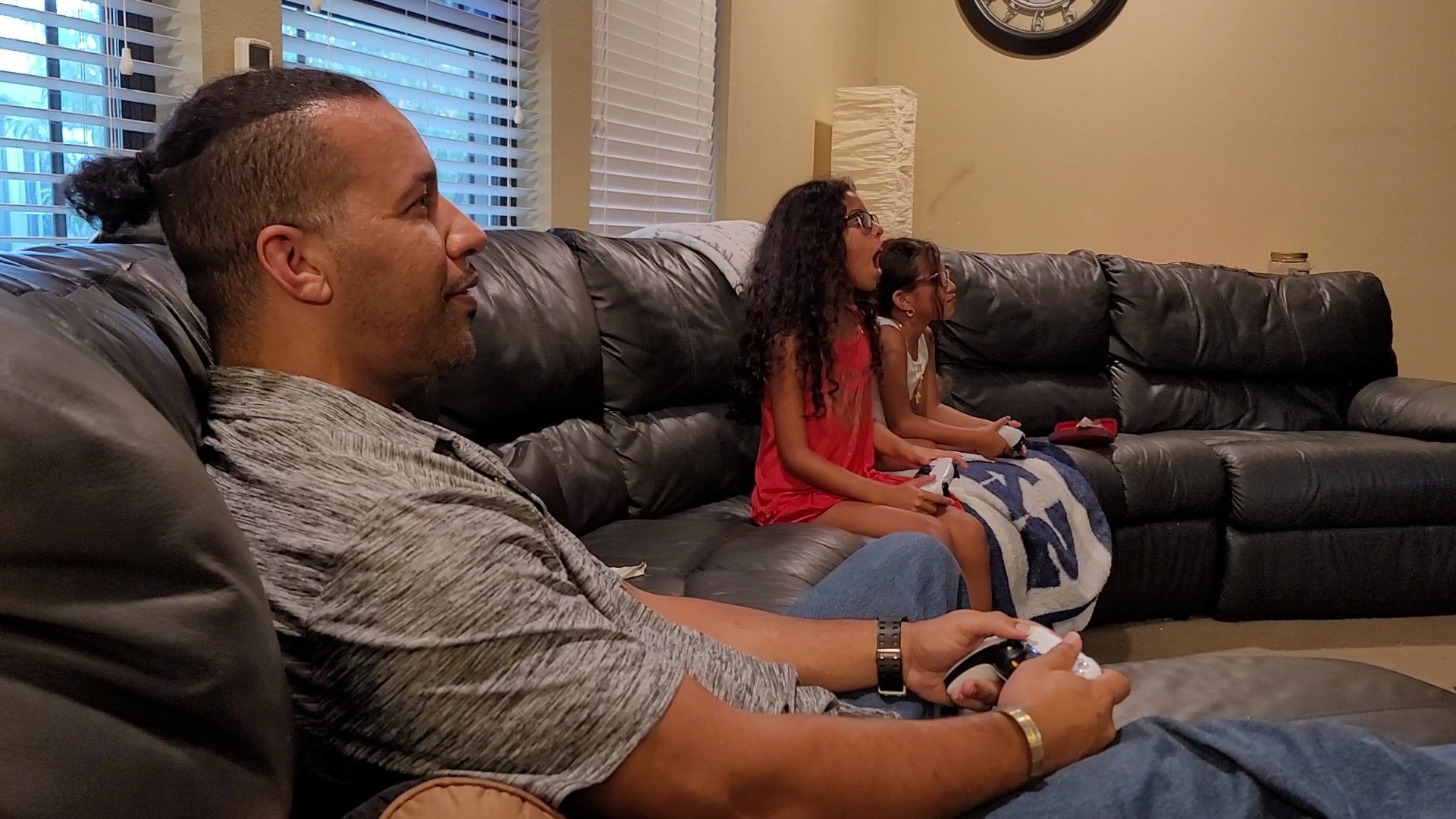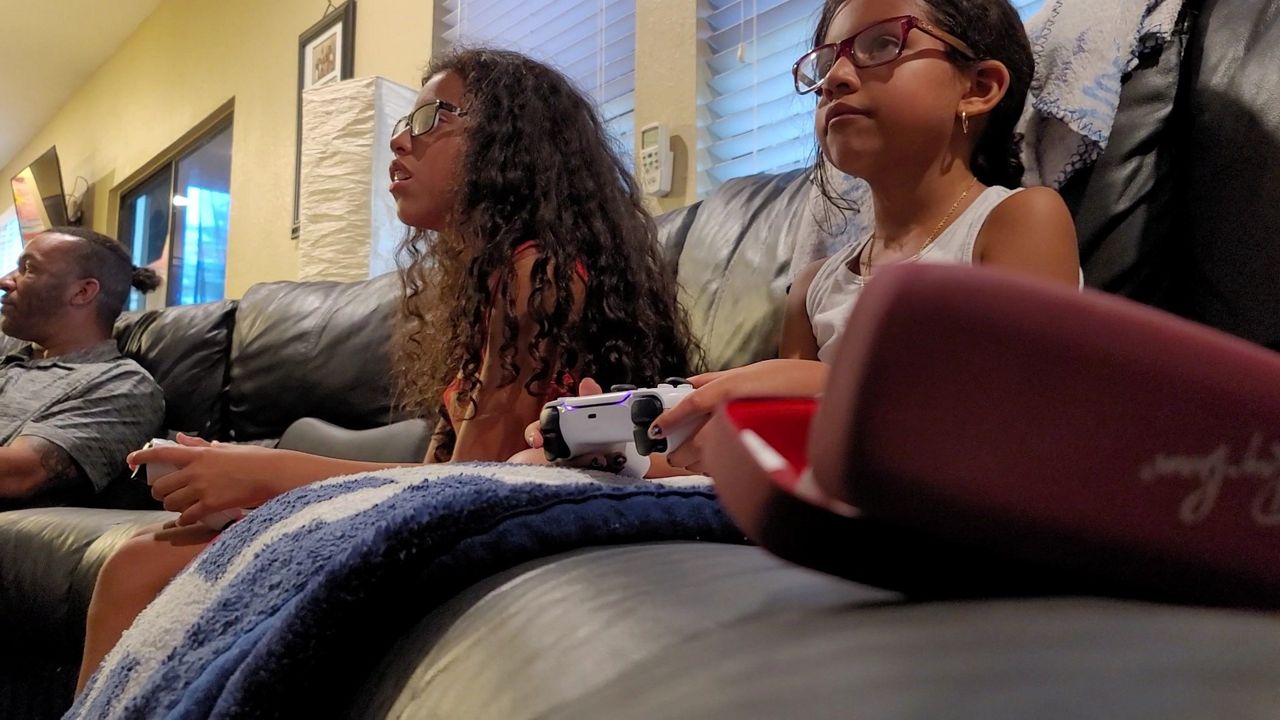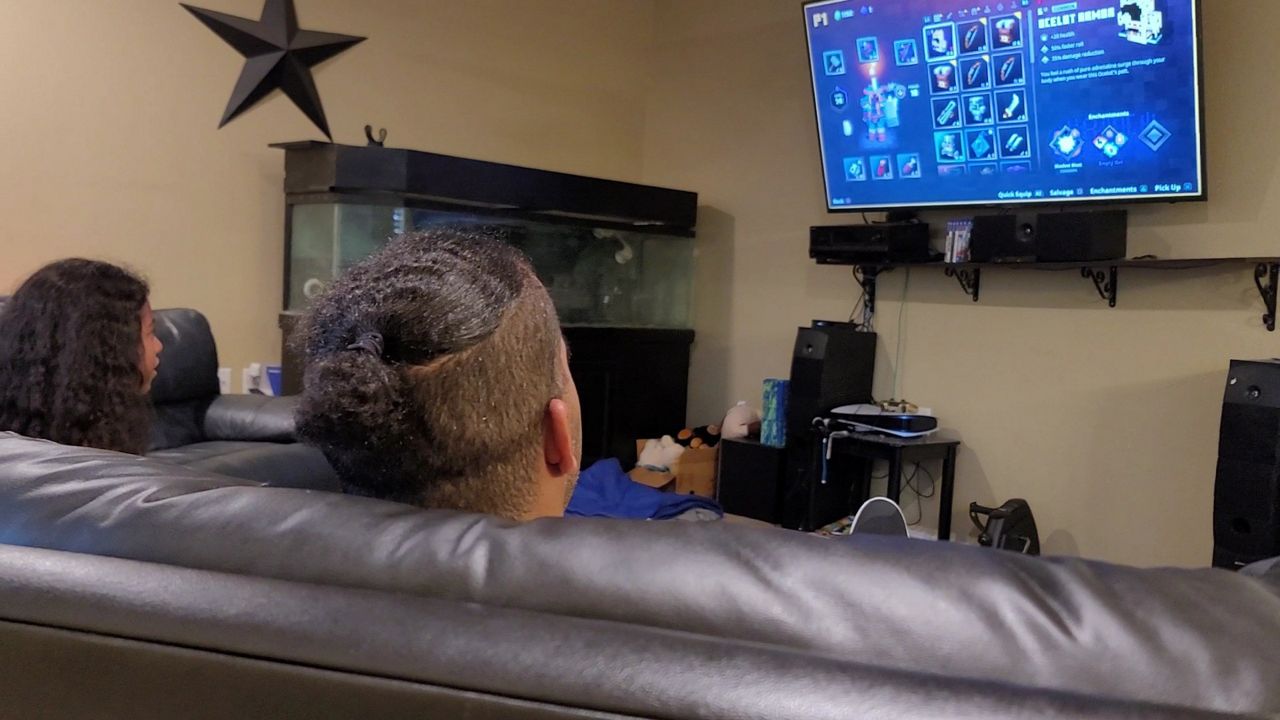TEXAS — In Mike Fisher’s home, video games have become a way to bring the family together.
“It’s opened up a new line of communication for us to spend time together and sometimes we’ll be in different rooms with the headsets on,” Fisher said. “You don’t have anything to talk about with your kids but they decide to just start talking without really thinking about it.”
Fisher is raising four daughters. The oldest is 17 years old and the youngest is 7. All four of them have grown up around video games and actively play.
“They give me a run for my money and even excel past me in some of the games,” Fisher chuckled.
Fisher can list off each gaming platform he has played on dating back to Atari so he's had plenty of practice perfecting healthy gaming.

“It’s just one of those things that if you’re open to the research and paying attention to yourself then your body will let you know. Even too much water is bad for you. Everything in moderation,” Fisher said.
Fisher recognizes it may be more difficult for children to understand that mindset so he pays close attention to his daughters' gaming habits and will pull back on game time if school grades are slipping or any other concerns arise. His youngest daughter, Luna Bella, even recognizes when it’s time to put the controller down.
“You need to take your eyes a break,” she said.
Nearsightedness due to constant screen time is one reason why China is restricting minors from playing video games weekdays and limiting play time to three hours on weekends and holidays. But as one of gaming’s biggest markets, concern over video game addiction is what most people heard as the reason for the strict mandate which took effect in August. The country went as far as comparing video game addiction to opium addiction.

“The definition of a gaming disorder is actually fairly new,” licensed professional counselor Andrew Lightfoot said.
Lightfoot is an expert on the psychological benefits of gaming and clinical director with Thriveworks.
According to the World Health Organization, for gaming disorder to be diagnosed a person must be experiencing significant impairment in personal, family, social, educational, occupational or other areas of their life over the course of 12 months.
“What the research shows is that video games aren’t actually detrimental to most of those things except for maybe teenagers, young adults if they are playing video games and not keeping up with their studying or job duties,” Lightfoot said.
Brigham Young University concluded a recent six-year study, the longest study ever done on the topic of video game addiction, finding that 90% of gamers do not play in a way that is harmful or causes negative long-term consequences. Roughly 10% of gamers fell into the pathological video gameplay category. Those individuals displayed higher levels of depression, aggression, shyness, problematic cellphone use and anxiety by emerging adulthood according to BYU.
If a parent does become concerned that his or her child may be addicted to video games, Lightfoot suggests an open-minded approach.
“I would sit down and have a discussion about what video games do for the child. Is it a method of escape? Is it a way to build relationships online? Is it just a way to pass time? Video games are like any other addiction, it’s generally doing something for someone,” Lightfoot said.
Lightfoot also suggests looking at educational and occupational goals for both the child and the parent.
“Create a reinforcement system and I think this is something a lot of parents do naturally. Once your homework is done you get to go play video games,” Lightfoot said. “I think expectations get thrown off when we put unrealistic expectations on children or students and when we have a knee-jerk reaction that video games themselves are the problem.”
Fisher says he’ll pay attention to other indicators such as changes in eating habits and body language.
“You’ll know it’s about time to pull them off the game, take a break and see if those eyes are heavy or not,” he said.
The Fisher family makes time for other quality time activities such as a trip to the neighborhood park where Fisher will watch his two youngest play with neighborhood kids. It’s an easy way to offer his kids alternatives to keep their minds and bodies moving.
“Once you get them out of the house, out of that zone that they’re in they’re usually happy that they’re out and about and then they want to fight you about going back in the house,” Fisher said.




